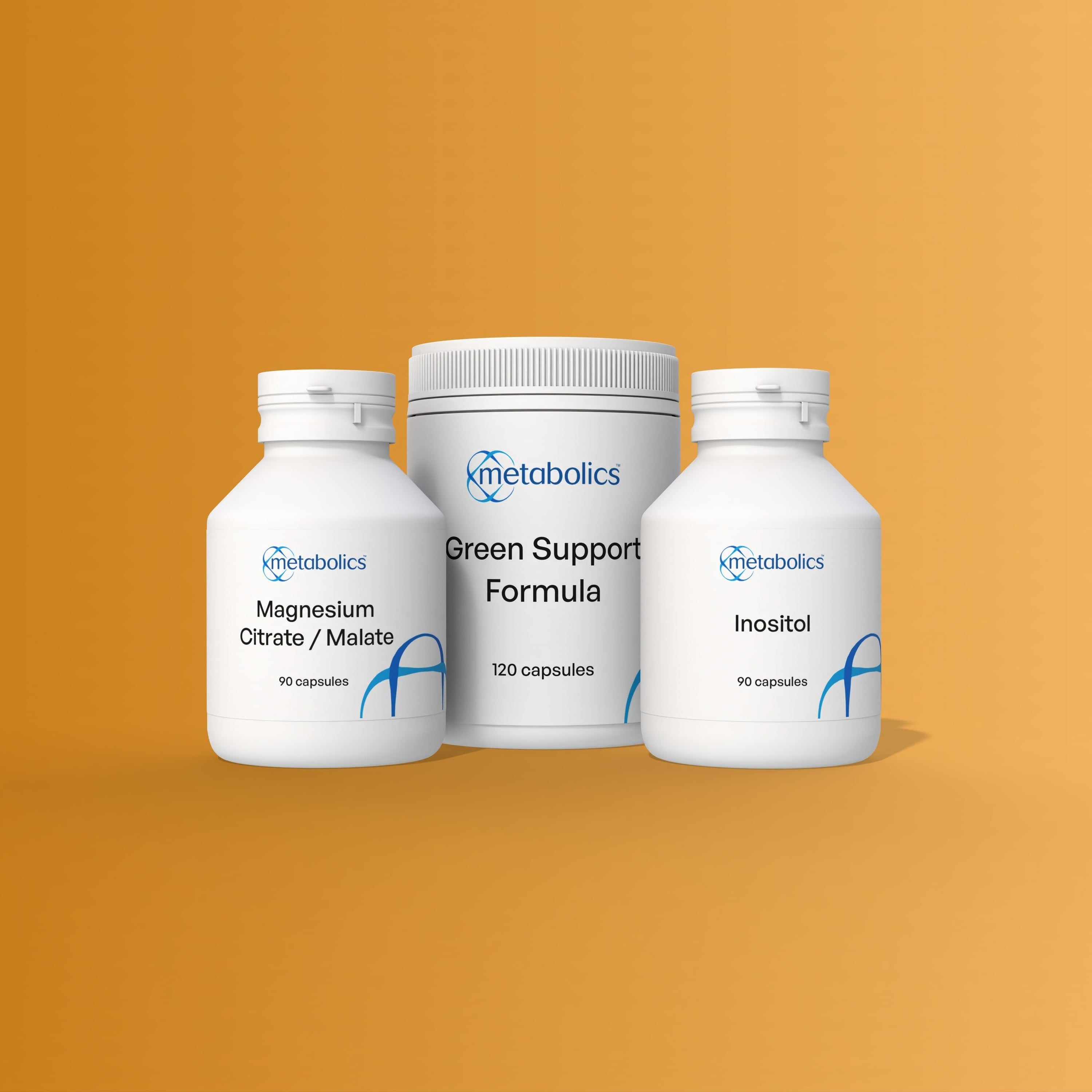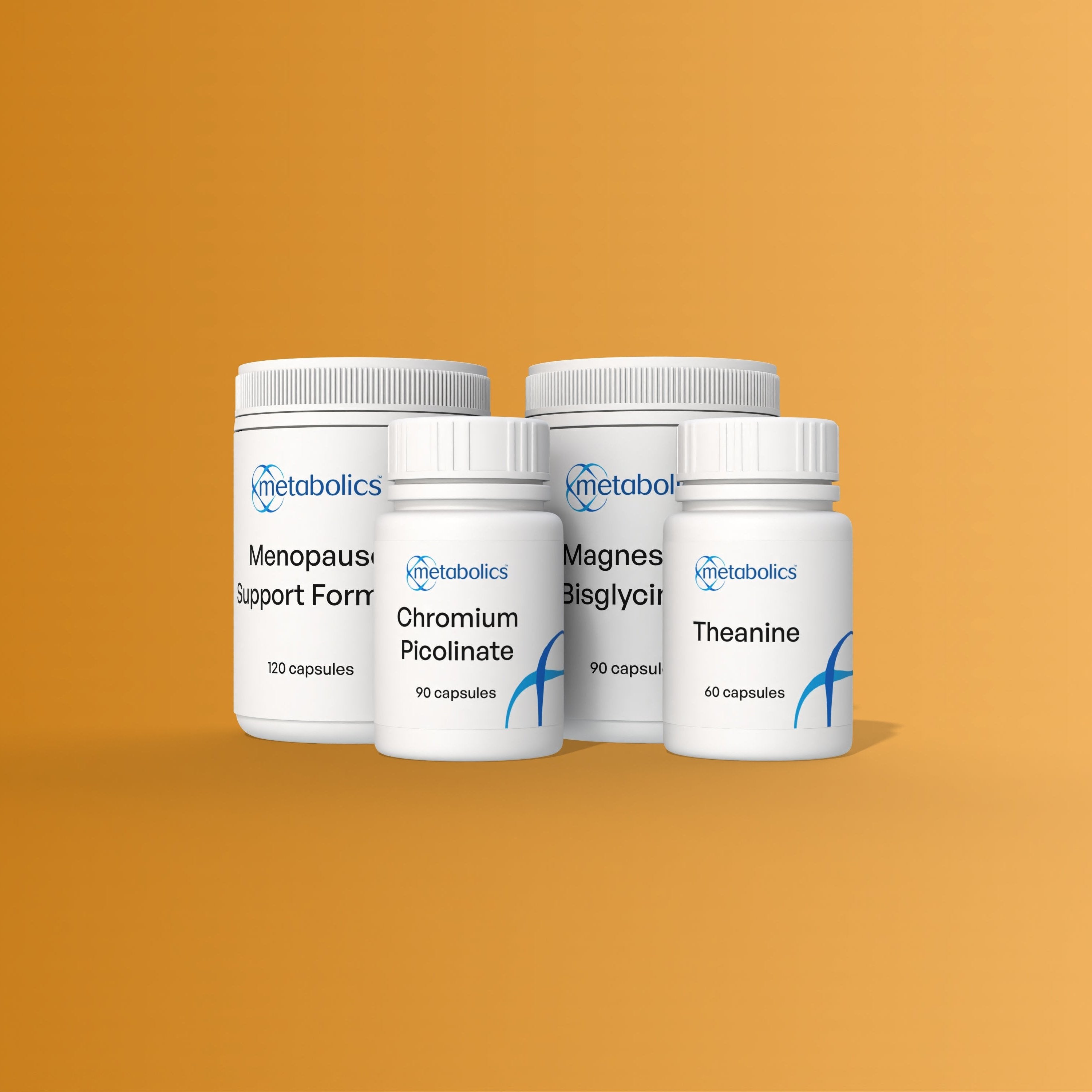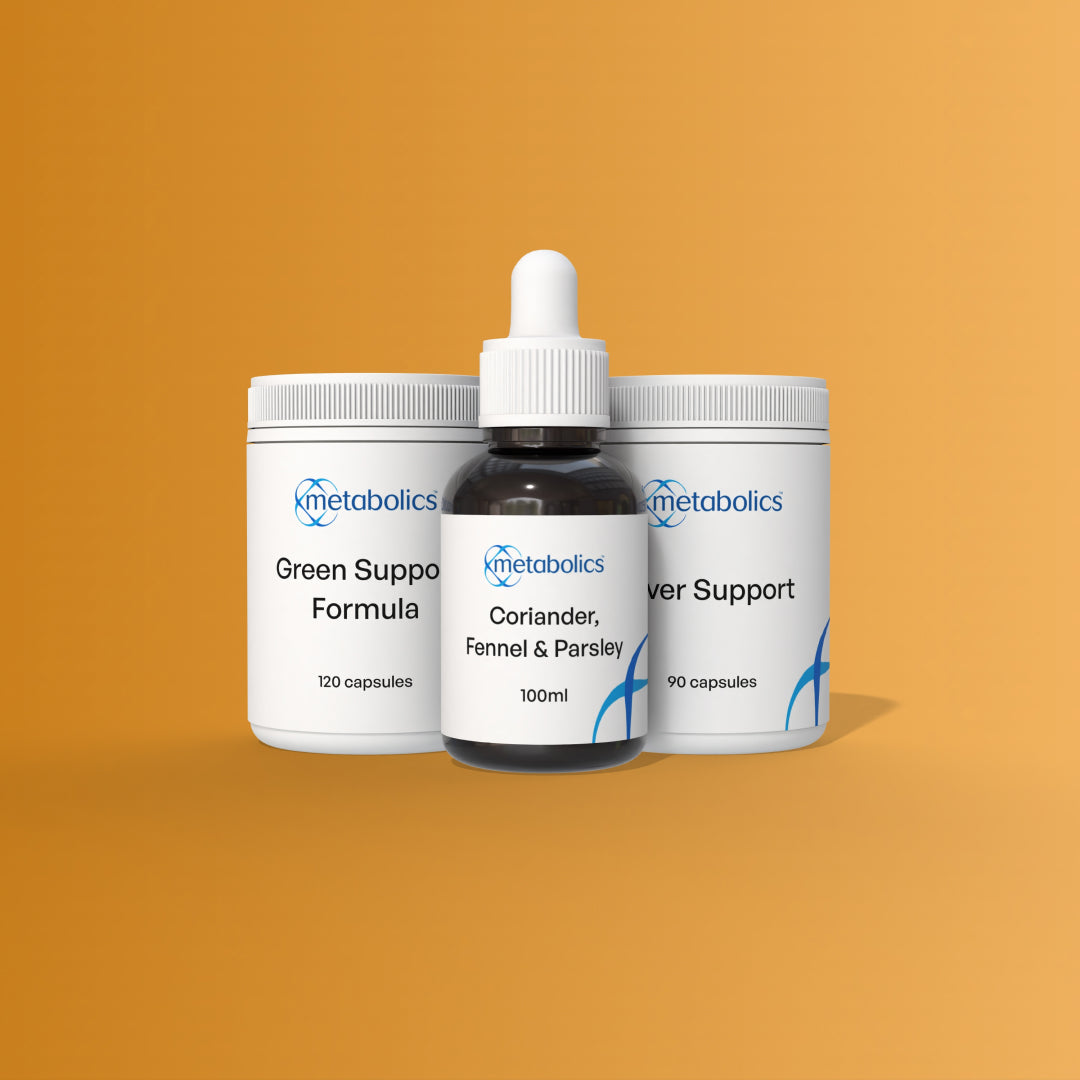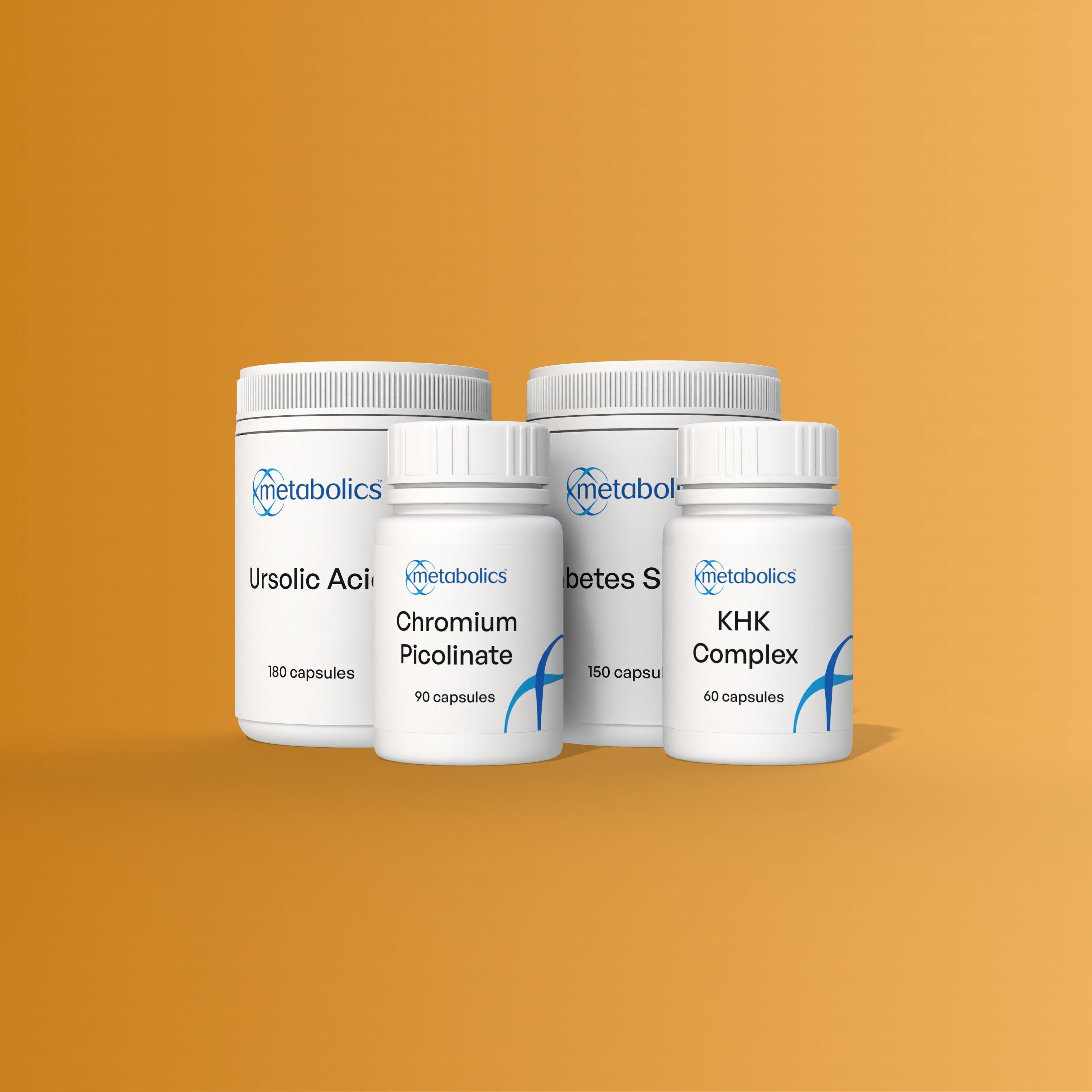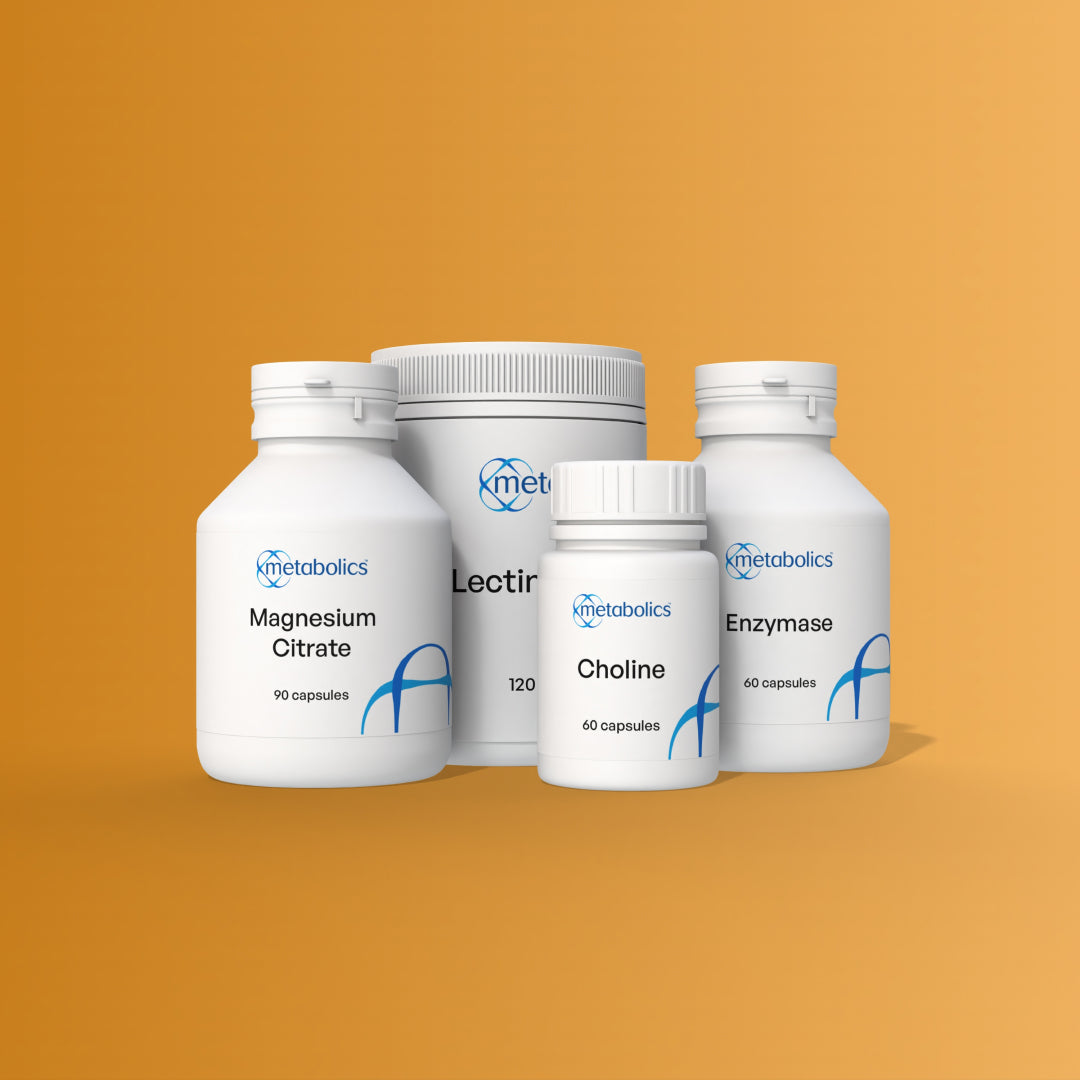Hormones are chemical messengers that control pretty much every process that happens in our body. Signs of unhappy hormones will include PMS, heavy periods, low or fluctuating energy levels, mood swings, disrupted sleep and issues with weight maintenance.
We have numerous plans designed to support hormone health including Premenstrual Support, Menopause Support, Detox Enhance and Metabolic Enhance. These are often combined with IBS-C if there is a digestive element that is playing into a hormone imbalance issue.
What do our hormones do?
We have many different hormone pathways, and they're all doing something all of the time. As examples we have:
- Reproductive hormones (oestrogen, progesterone, testosterone)
- Thyroid hormones (T3 and T4)
- Adrenal/stress hormones (adrenaline/epinephrine, noradrenaline/norepinephrine
- and cortisol)
- Those that control blood sugar levels (insulin and glucagon) and appetite (leptin and ghrelin)
- And neurotransmitters (hormones of the brain and nervous system) that control mood (serotonin and dopamine) and sleep (melatonin, GABA)
Grouping them as they are above is of benefit to understand their primary actions however no hormone has just one impact, your reproductive hormones will impact your digestive system, and your thyroid hormones will impact your blood sugar response too.
So to summarise keeping your hormones happy is integral for your health as a whole.
The foundations of happy hormones
- Raw materials: Different hormones are made from different things but the 2 major groups are derived either from fat or protein.
- Ensure you are consuming sufficient amounts of eggs, meat, fish, organic dairy and/or organic non-GMO soy depending on your dietary preference to meet your protein requirements.
- And whole food unsaturated fats such as nuts, seeds, nut and seed butters, cold pressed olive or avocado oil, avocados, small oily fish (salmon, sardines, mackerel, anchovies, herring and trout).
- Saturated fats (those hard at room temperature) such as butter, ghee, tallow and coconut products are important too but we need less of them.
- Removal pathways: Optimising your digestive and liver function is key as it's these outflow routes that ensure proper balance and removal of hormones once they’ve had their actions.
- I have found that the majority of hormonal imbalance issues are related to improper excretion and recirculation of hormone metabolites because someone isn't going to the bathroom to pass bowel movements properly each day.
- This is where IBS-C would be of use.
- Balancing stressors: Our stress response is our survival strategy and so it has an 'all seeing eye' style impact on other hormone pathways when it is turned on.
- As an example elevated cortisol levels will decrease the potency of the hormone insulin which is designed to keep our blood sugar levels stable by deciding what we use for energy and what we store.
- Because this is so important for our health our body will try to overcome this by producing up to 3 times more insulin when cortisol levels are raised. Over time this then creates an issue with insulin resistance (akin to The Boy Who Cried Wolf - omnipresent insulin means our cells start to ignore it). This is then what causes symptoms such as central fat gain, fluctuating energy levels, sweet cravings, waking in the night and sudden drops in mood when we are hungry.
- You can read more on signs of unstable blood sugar and how to remedy this here.
Putting this into practise
- Soluble:Insoluble Fibre Ratio
-
We need plenty of fibre in our diet but more isn’t always better if we’re getting the balance between the types wrong. Insoluble fibre provides bulk and tickling stimulus to the intestinal muscles to contract effectively. Soluble fibre comparatively is absorbent and aids smooth transit by drawing fluid into the colon. Soluble fibre is also the form that will bind with hormones for removal and in my experience it’s often simple therapeutic dosing of this that can solve mild hormonal imbalance situations.
-
Particularly useful sources are:
-
Freshly ground flaxseed as the lignans within this can bind to excess oestrogen for removal.
-
Soaked psyllium husk is also wonderful for this and has a secondary benefit of aiding cholesterol management.
-
You want to make sure you are hydrating these before they enter the body by soaking or mixing them with warm water, herbal tea or a milk of choice depending on how you are featuring them. Options such as a flax porridge, or adding psyllium into a smoothie work really nicely.
-
Chia water is also a brilliant way to gently and progressively support transit. Simply add 2 tablespoons of whole chia seeds to a litre of water. Shake well, add a pinch of salt and leave the seeds to swell for 30 minutes. Shake the bottle again and drink over the course of the day alongside other fluids.
-
Beans, pulses and legumes will also often be suggested as great hormone supportive foods and this is very true, however there is a proviso that if your digestion isn’t optimal, and/or you aren’t used to consuming lots of these things that we want to gradually incorporate them. We really want to be soaking them well first too. This is because the outer casings of these foods contain anti-nutrient compounds such as phytic acid and saponins which can be hard to breakdown leading to gas and discomfort, as well as blocking uptake of certain nutrients such as iron, calcium, zinc and magnesium which are critical for hormone balancing processes.
- Bitter & Sulphur Rich Foods
- Often referred to as cholagogues these are your foods that stimulate liver function and bowel motility.
- Have at least 1 portion on a daily basis. If you can start your meals with 1-2 of these then even better!
- Examples would be:
- Artichoke, asparagus, broccoli, cauliflower, cabbage, kohlrabi, chicory, endive, walnuts, pumpkin seeds, raw cacao nibs, apple cider vinegar, sesame, and garlic.
- Fenugreek
- Is specifically for balancing testosterone levels so can be incredibly useful where there is dysfunction in this part of the web (such as amenorrhea, menopause or PCOS).
- Crush the whole seeds lightly and steep in hot water for 10-15 minutes then sip the tea daily.
- Fermented Foods
- Balanced gut bacteria levels and a consistent intestinal environment is the foundation of hormonal health. Aim to slowly dose yourself up towards 1-2 tablespoons daily of a combination of any of the following.
- Try to vary the types of ferments in your diet and ensure they are raw and unpasteurised too as otherwise it means they’ve been heated which destroys their probiotic power!
- Examples include: Kefir (water, coconut, dairy), sauerkraut, kimchi, other lacto-fermented vegetables, natto, tempeh, fresh miso paste, raw apple cider vinegar, kombucha (check it doesn’t contain sweeteners like erythritol, mannitol or stevia)
- Omega 3 Sources
- Hormonal fluctuations actually create inflammation within the body as part of your immune system’s survival mechanism. An optimal omega 3 status is associated with a body that is able to manage this response though and keep it from going overboard.
- Issues with period pain, feeling washed out and actually being less resilient to infection are all signs of a poorly modulated immune response.
- You want to be including regular portions of sardines, mackerel, anchovies, salmon, herring and trout, cold pressed flaxseed/hemp/chia oil, and most often a supplement too to make sure your levels are where we want them to be.


